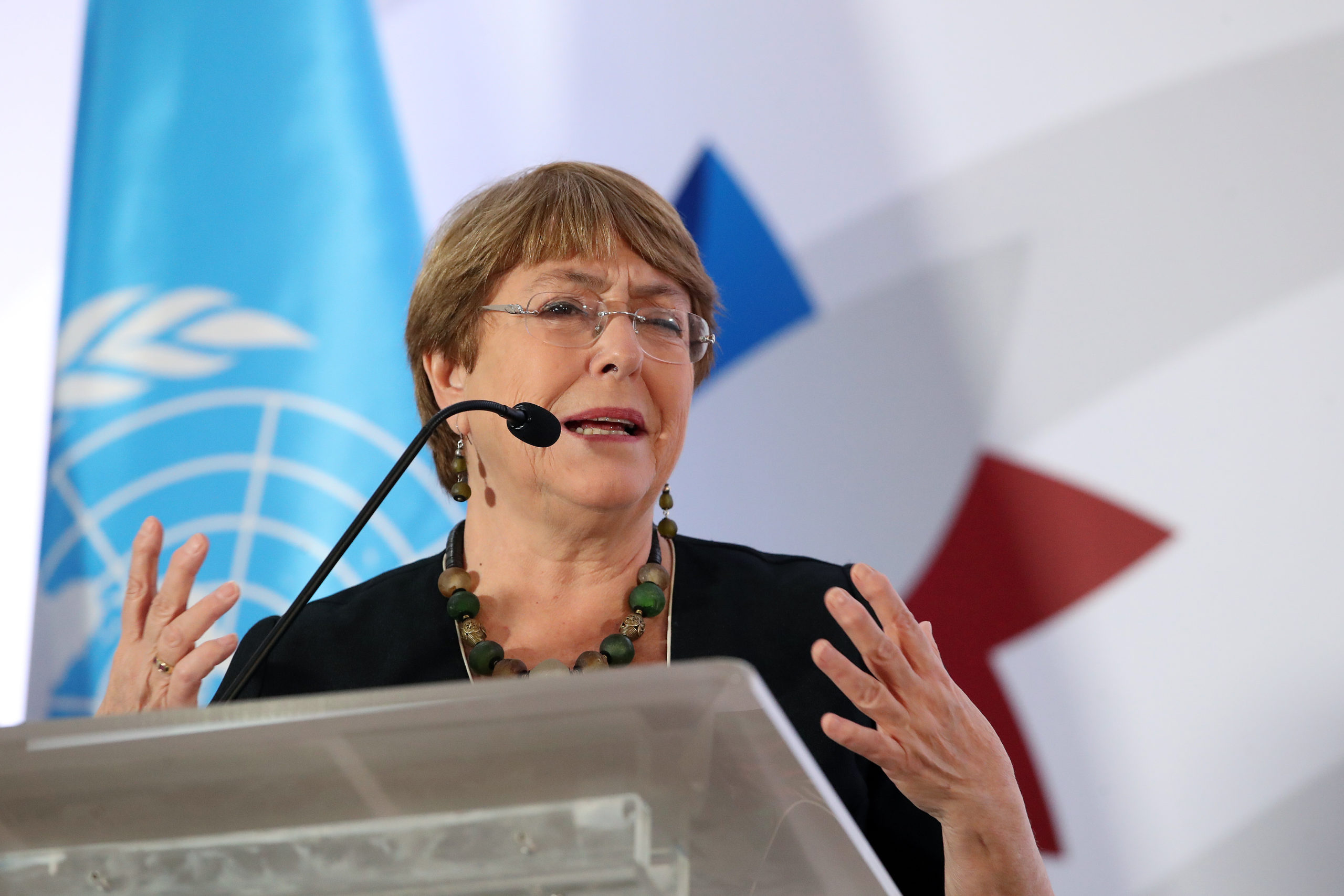
FILE PHOTO: United Nations High Commissioner for Human Rights Michelle Bachelet in San Jose, Costa Rica, on December 03, 2019. (Photo by JOHN DURAN / AFP)
MANILA, Philippines — United Nations High Commissioner for Human Rights Michelle Bachelet on Thursday urged the Philippine government to make public its findings on drug war killings.
“I encourage publication of the panel’s findings so its work can be evaluated,” Bachelet said at the 48th session of the UN Human Rights Council.
“The authorities should also involve the National Human Rights Commission and other relevant actors, including by sharing information on cases under investigation, to ensure an effective and victim-centered process,” she added.
The Department of Justice earlier said it will direct the National Bureau of Investigation to determine the criminal liability of at least 150 police officers involved in anti-drug operations that led to the deaths of 50 suspects.
Justice Secretary Menardo Guevarra has said that based on the facts gathered by the Philippine National Police’s Internal Affairs Service, evidence pointed to the involved policemen’s criminal liability.
READ: DOJ drug war probe zeroes in on 154 cops
Meanwhile, Bachelet said she remains “disturbed” by reports of “continuing and severe human rights violations and abuses across the country, including killings by members of the security forces and law enforcement in counter-narcotics and counter-insurgency operations – often in circumstances that indicate basic human rights standards have been ignored.”
“Killings by alleged vigilantes also continue to be reported, with virtually no information about any form of accountability,” said Bachelet, who likewise noted receiving reports of abuses by the New People’s Army.
Human rights defenders, the UN rights chief said, continue to be at risk of harassment, threats, and killings.
Bachelet added she remains deeply concerned by continued reports of red-tagging of human rights and environmental defenders, journalists, union activists, church workers, and humanitarian workers.
She also stressed that while justice must be pursued for the victims of alleged extrajudicial killings, there should also be institutional and policy changes to prevent similar violations.
“In this context, I note recent rulings by the Supreme Court that limit the power of judges in Manila and Quezon to issue warrants outside their judicial regions and requiring police officers to wear body cameras when serving warrants. The use of body-worn cameras and alternative recording devices in police operations is now mandatory,” she said.
“As the Philippines heads into an election year, I urge all sides to set aside the ugly rhetoric and destructive narratives that label human rights defenders, attack independent media, or condone extra-judicial killings and other violations and abuses,” said Bachelet.
She said the government “should take determined action to ensure free civic space and protection for those who engage in peaceful civic action and debate at this particularly important time.”
In September, the Pre-Trial Chamber I of the International Criminal Court (ICC) approved the start of the probe into the crimes against humanity cases filed against President Rodrigo Duterte in connection with the drug war killings. However, Duterte’s officials said the Philippines will not cooperate with the ICC investigation.
RELATED STORY
ICC prosecutor vows to ‘uncover truth, ensure accountability’ in drug war probe

